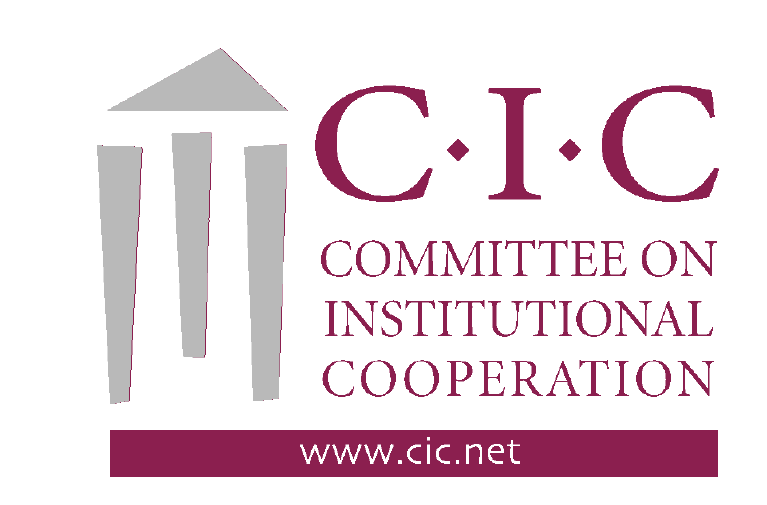
One Big Ten team isn't waiting to mix it up with the Huskers.
And while others are focused on athletics in regard to UNL's July 1 entry into the new conference, this Big Ten squad is interested in learning about Big Red academic programs and meeting faculty.
Members of the Committee on Institutional Cooperation will visit UNL Feb. 28 to March 2. The CIC is a consortium of Big Ten universities plus the University of Chicago. The group works to advance the academic missions of members, provide opportunities for faculty and students, leverage the power of shared resources and collaborate on innovative programs.
"We want to come to Lincoln and connect with key university officials, share with them the story of the CIC and listen to ideas on how we can best engage faculty, staff and students," said Barbara McFadden Allen, director of the CIC. "This is basically a fact- finding mission. We want to walk away with a good understanding about what the aspirations are at UNL and how we can help the university move forward."
A public reception is 4 to 5 p.m. March 1 in the Nebraska Union Regency Suite. The event is open to all faculty, staff and students.
Ellen Weissinger, interim senior vice chancellor for academic affairs, said the entire university community should take advantage of this opportunity to meet colleagues from the CIC.
"Our entrance into the CIC provides many direct benefits to faculty and students, faculty development opportunities, faculty exchange programs, new courses and study abroad opportunities for students," Weissinger said. "There is also the potential for large scale cost savings related to libraries, IS and purchasing and the opportunity to participate in major initiatives like the Google digitization project."
The delegation, visiting from CIC headquarters in Champaign, Ill., includes Allen, CIC executive director; Kim Armstrong, deputy director affiliated with CIC's Center for Libraries Initiative; Amber Marks, associate director whose portfolio includes academic collaboration, course sharing, graduate programs and professional development; Jeff Oberg, assistant director for business operations (internal operations and management, purchasing); Karen Partlow, associate director whose portfolio includes technology collaboration; and Mark Sandler, director of the Center for Libraries Initiative.
While on campus, CIC officials will meet with invited faculty and administrators whose areas of interest coincide with CIC initiatives.
This is the first time CIC officials have visited UNL. Several delegations from UNL have visited CIC offices in Illinois since the announcement to join the Big Ten was made last summer.
Among the goals of the visit are for CIC leaders to connect with faculty at UNL to learn how UNL and CIC can best engage; to identify opportunities and resources UNL can contribute to the CIC community; and to further explore ways UNL and the CIC can work to best advantage for all.
Allen said the CIC team is particularly interested in learning about UNL's Center for Digital Research in the Humanities.
"UNL really looks to have the most coherent strategy for integrating digital scholarship into humanities," Allen said. "Most universities do not have as well-articulated a strategy. We think UNL will provide a model that can be transplanted to other universities in the CIC."
Other areas of focus include linking the UNL Libraries with the CIC/Google agreement to build the world's largest digital book collection; learning about UNL's information technology programs; and identifying courses that can be shared across CIC institutions.
"Getting the libraries and IT immersed right away is important because they will help define how we fully integrate UNL," said Allen.
UNL's direct connections with the CIC have already started to take shape. According to Allen, the CIC and UNL Information Services have reached an agreement regarding the Great Plains Network, a high-speed network that offers researchers an infrastructure to support advanced research and education applications.
"We've already established this agreement where the CIC provides some network redundancy for the Great Plains Network," Allen said.
While learning about campus programs is important, the team also wants to meet as many faculty, staff and students as possible. Allen said engaging with the campus community is a key to success as UNL and the CIC join forces on July 1.
"We feel strongly that it is important to meet people face to face," said Allen. "We want to be on your campus, in your office, learning about the issues you deal with every day.
"Universities look very similar on the surface. But, each one is unique and brings different assets to the table. The CIC is able to tap into and share those assets, making each institution stronger for their faculty, staff and students."
Weissinger said it is easy to imagine that joining the CIC will be the single most important academic development in UNL's modern history.
"We'll discover many valuable relationships in these groups," she said. "And there are, of course, the immediate and long-term reputational benefits we reap by being associated with an elite group of universities."
The CIC is governed and funded by the provosts or chief academic officers of its member institutions.
For more information about the CIC, go to http://go.unl.edu/cic_info.
- University Communications
More details at: http://go.unl.edu/489